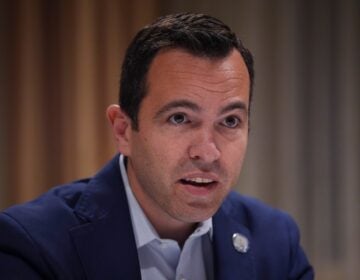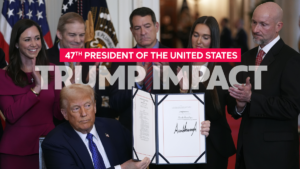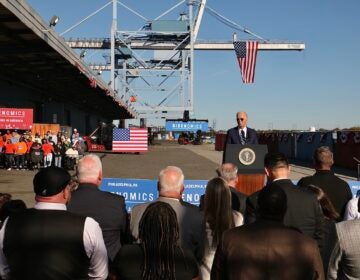Academics in N.J., Philly protest Trump administration cuts to scientific research
Rallies in Center City and at Rutgers University were part of a nationwide day of action to speak out against Trump administration cuts.
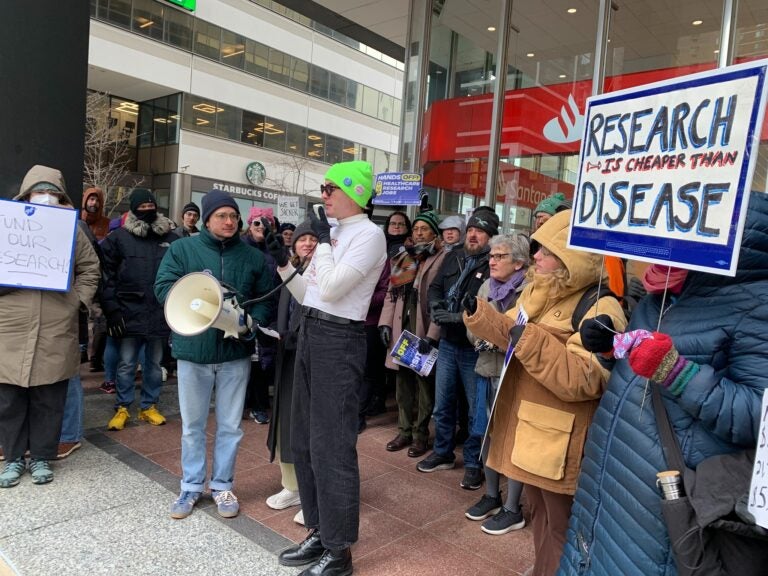
Local faculty members, scientists and students gathered in front of Sen. Dave McCormick's newly opened Philadelphia office to protest federal funding cuts to science. (Alan Yu/WHYY)
From Philly and the Pa. suburbs to South Jersey and Delaware, what would you like WHYY News to cover? Let us know!
Dozens of protesters filled the atrium of the Life Sciences Building at Rutgers University-New Brunswick to show their opposition to President Donald Trump’s administration’s funding cuts and freezes targeting scientific research and higher education.
The researchers say the cuts and freezes in funding have an impact beyond campuses, from medical research to support positions that contribute to the economy.
“This isn’t just abstract,” said Dr. Martha Soto, a professor at the Department of Pathology and Laboratory Medicine at Rutgers Robert Wood Johnson Medical School. “One of my lab members is a single mom trying to buy a house. What’s going to happen to her and her daughter? I’m thinking about actual human beings who may lose their jobs.”
The rally in New Jersey was one of several organized by several labor unions that took place nationwide. Professors and researchers at Rutgers-Newark also held a rally on their campus.
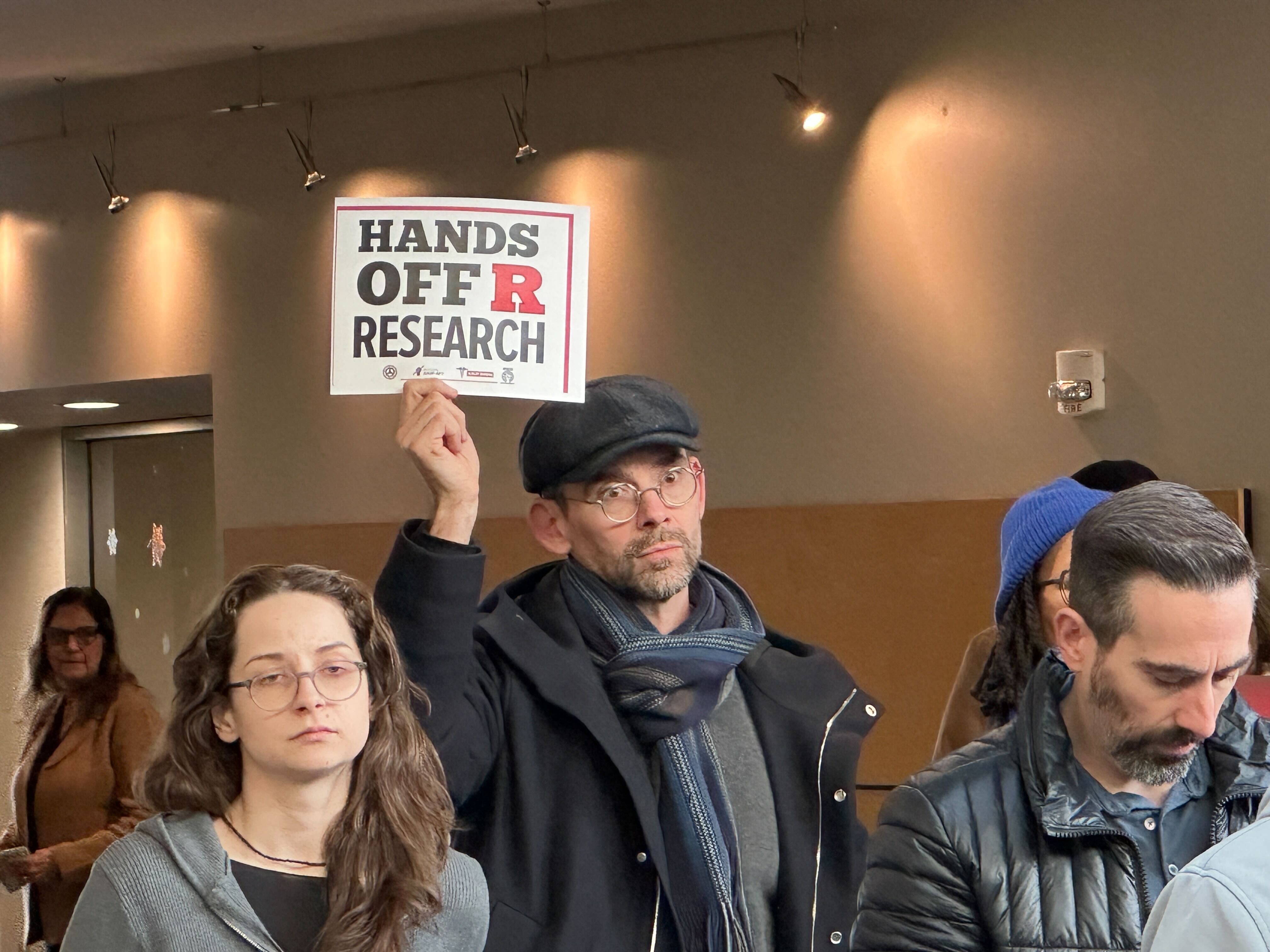
In Pennsylvania, more than 200 researchers, students and local faculty members rallied in front of Sen. Dave McCormick’s recently opened Philadelphia office Wednesday to protest.
Sam Layding, a doctoral student in chemical and biomolecular engineering at the University of Pennsylvania, said they were at the rally to make sure politicians know how important scientific research is. Their work could have applications in fuel cells and other parts of the energy sector.
“It’s obviously very upsetting to know that the people who make decisions at the highest level of government don’t think the work we do is important or meaningful,” Layding said.
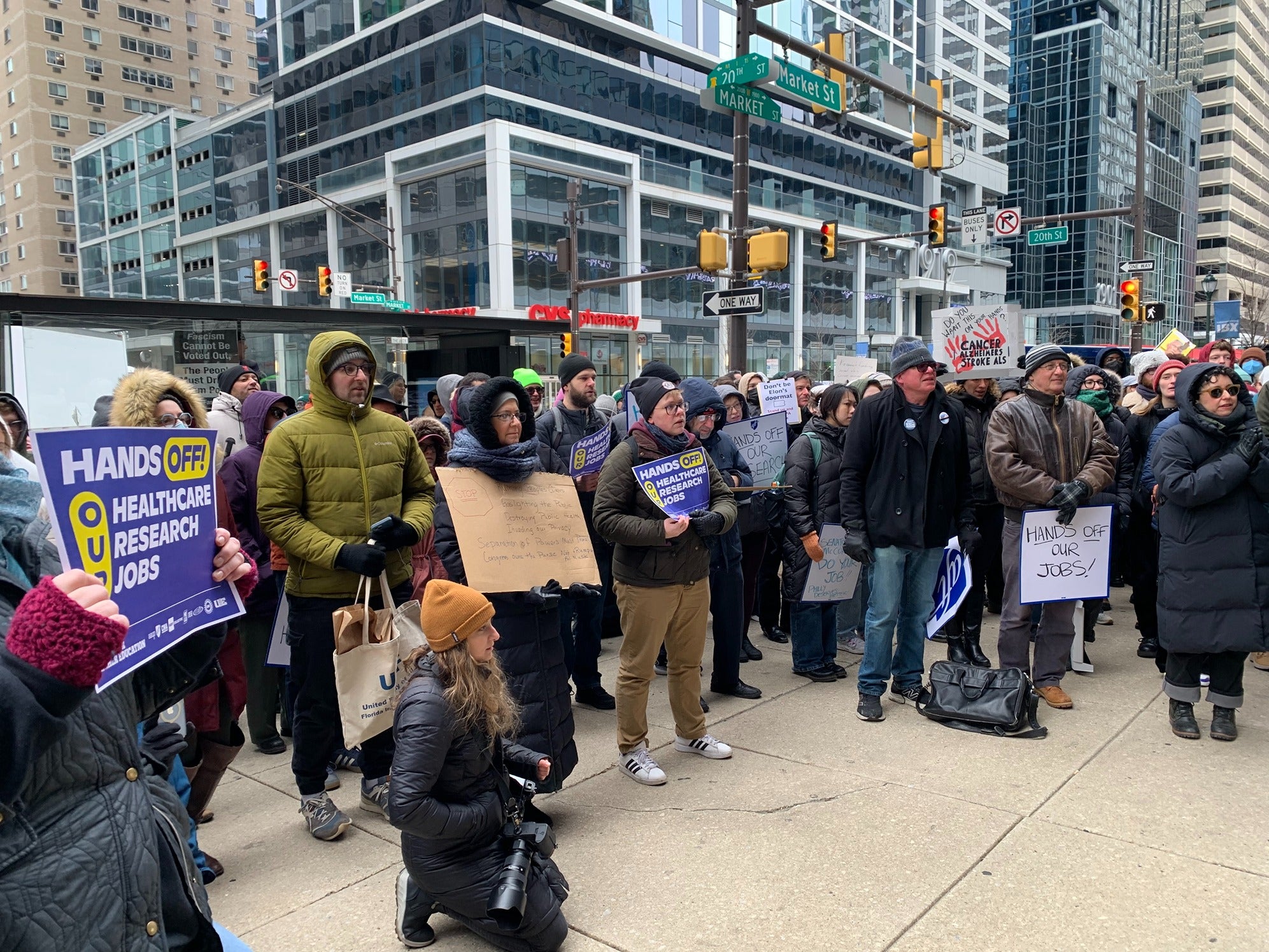
Layding said their work is partly funded by the National Science Foundation and is part of the grants being reviewed right now.
Under the new administration, the National Institutes of Health wants to reduce the funding limit for “indirect costs” — which pay for the overhead costs of running research institutions, like lighting, hazardous waste disposal and lab equipment. Historically, the U.S. government has shared this cost with research institutions.
Dr. Matthew Buckley, an associate physics professor at Rutgers-New Brunswick and chair of the full-time faculty union’s legislative committee, said the cuts to NIH are part of “a larger destruction.”
“I don’t know what people voted for last November. I’m pretty sure they didn’t vote to cut cancer research, and that is what’s going on,” he said. “It’s going to affect the next generation of medical doctors, it’s going to affect the next generation of treatments. It’s going to really hurt people’s lives very, very directly.”
Liam Maher, a doctoral student in art history at Temple University, said his mother was diagnosed with advanced lung cancer last year and received a treatment recently approved by the Federal Drug Administration developed with funding from the NIH.
“She is with us still today, thanks to the many scientists, students and scholars whose research brought an unthinkably powerful treatment into being. I can’t imagine where I or my family would be without this invaluable work,” Maher said. “Projects like this — that have the power to ease suffering and improve lives — may never see the light of day because of these freezes to NIH and NSF funding.”
Lindsay Guare, a doctoral student in biomedical studies at Penn, said she had women coming up to her at a recent conference to thank her for studying endometriosis, a chronic disease that is estimated to affect 10% of women of reproductive age.
“I practically live in the lab, pushing for long hours because, from the bottom of my heart, I hope that the knowledge we discover will help people someday,” she said. “In an ideal world, I would be fighting to expand support for my science instead of fighting to keep it afloat.”
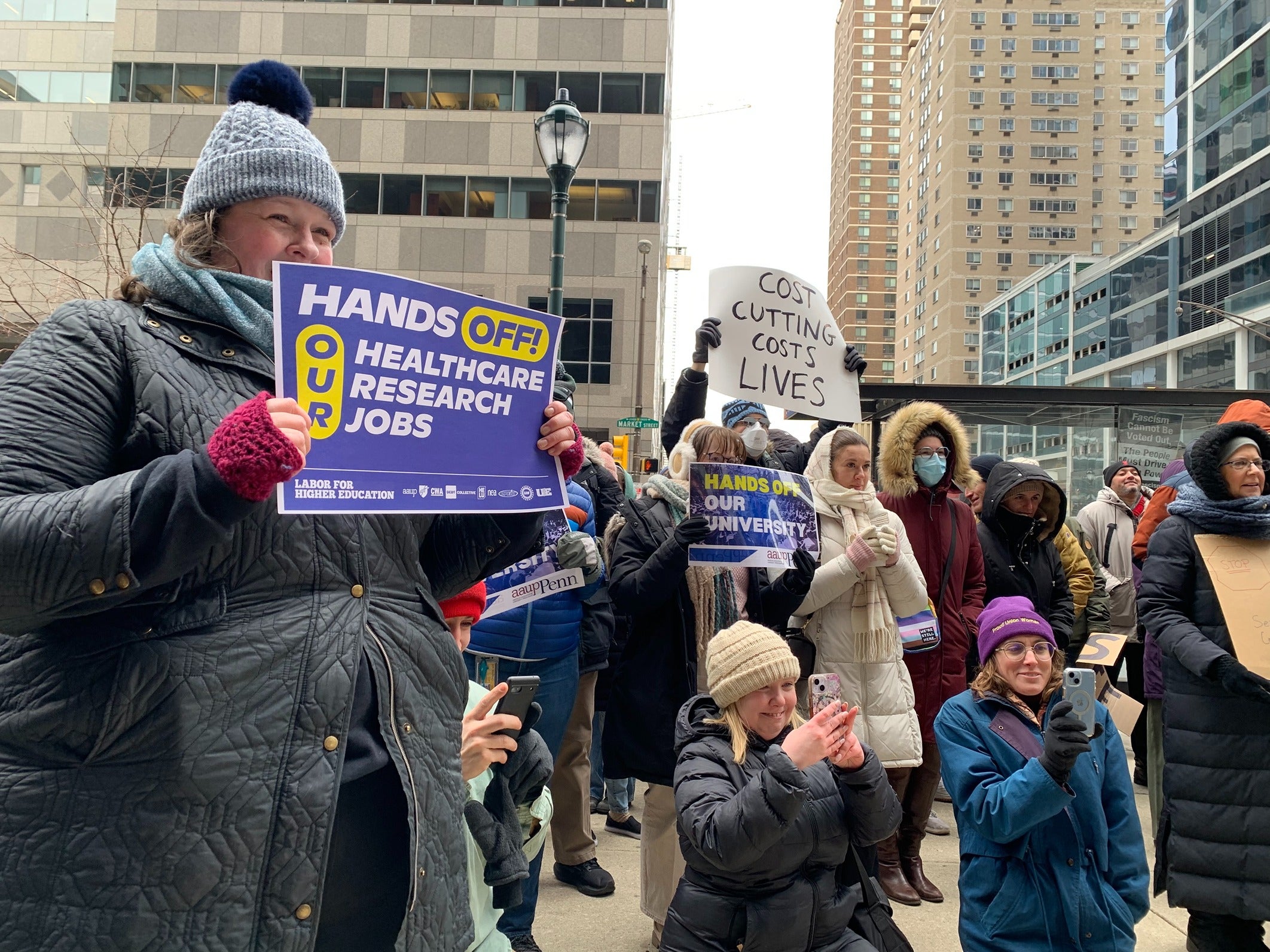
Local politicians also showed up to support the Philadelphia rally, including City Councilmember Kendra Brooks, Pennsylvania state Rep. Rick Krajewski and state Sen. Nikil Saval.
“We have to dethrone these unelected creeps in government and we know that we can. We have been here before,” Saval said, referencing Trump’s 2017 travel ban, which resulted in mass protests at airports and an eventual reversal from federal judges.
“They came back better prepared. So we have to be prepared. We have to be organized. We have to grow our numbers,” he said.
U.S. Sen. McCormick did not respond to requests for comment.
The Association of American Universities, which includes Penn, Pennsylvania State University and Rutgers University, filed a lawsuit to stop the proposed cut.
Penn told the Daily Pennsylvanian that the cuts would reduce funding to the school by nearly $250 million per year.
Higher education institutions and hospitals account for almost 13% of jobs and more than $33 billion of the economy in the Philadelphia region, according to 2022 statistics from the Federal Reserve Bank of Philadelphia.
The NSF has also fired roughly 10% of its workforce and is reevaluating all the grants already approved to make sure it can comply with the White House’s executive order banning diversity, equity and inclusion, partly using a list compiled by Texas Sen. Ted Cruz, which labeled research on eclipses and self-driving cars as “woke DEI” work.
It’s been speculated that the use of the word “women” in grant proposals could trigger a review that would result in possible funding cuts because it would violate Trump’s executive order against DEI, according to reports from the The Washington Post and Nature.
The protest movement will continue, with a rally both online and in Washington next Tuesday.

Get daily updates from WHYY News!
WHYY is your source for fact-based, in-depth journalism and information. As a nonprofit organization, we rely on financial support from readers like you. Please give today.



